The effect of nano-curcumin on finisher performance
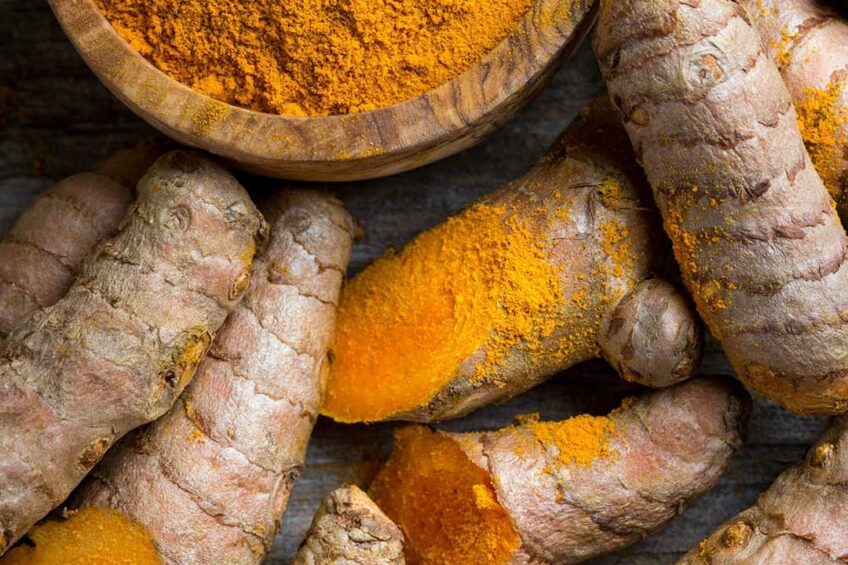
Recent research has paid much attention to the use of phytogenic additives in diets of weaning piglets. Interestingly, however, researchers turned their focus to finishing pigs in a recent study that demonstrated the potential of dietary nano-curcumin as an effective feed additive for improving performance and health status.
Research studies have focused on the use of phytogenic compounds in the form of nanocapsules, as most phytogenic materials are poorly bioavailable in biological systems. Curcumin is a polyphenolic bioactive compound that comes from the turmeric plant, Curcuma longa. This plant has phytotherapeutic potential owing to its antimicrobial, antioxidant, anti-inflammatory and immunostimulatory properties.
Nano-formulation of native curcumin increases its solubility and bioavailability. This makes it a better option in animal diets. Previous studies showed the encapsulation of phytogenic compounds to enhance intracellular uptake and improve delivery in the target organs through surface area modification of the phytogenics.
The curcumin study
In a recent study, researchers from the National University in Jeju, South Korea, supported by the Rural Development Administration and AT Consulting, delved into the effects of nano-curcumin nanospheres on growth performance, serum biochemistry, meat quality and gut health of finishing pigs. For the duration of the study (40 days), crossbred pigs with an average initial body weight of 73.8 kg got 1 of 3 diets:
Control diet: no additive;
NC-1 diet: diet supplemented with nano-curcumin (NC) 1.0 mL/kg diet; and
NC-2 diet: diet supplemented with nano-curcumin (NC) 2.0 mL/kg diet.
Growth performance
The results showed a positive outcome of dietary nano-curcumin through enhanced growth and feed utilisation (see Table 1). Supplementation with nano-curcumin showed significant improvements in average daily gain (ADG) and feed conversion ratio (FCR), which were more pronounced as the dosage increased. The growth improvements were attributed to the observed improvements in gut health that are further described below.
Meat and carcass quality
The neck and longissimus dorsi muscle nutrient composition was similar between the curcumin and the control group. Nano-curcumin improved the lightness, redness and yellowness of both neck muscle and longissimus muscle. The carcass weight and backfat thickness of pigs fed the higher NC-supplemented diet (2.0 ml/kg) were higher than those of the control and low concentration NC groups, which endorsed the beneficial effects of NC supplementation on weight gain.
The grading percentage (1+) of pork meat also increased with dietary supplementation of NC, which was attributed to the improvement in meat quality in pigs fed NC-supplemented diets; higher class meat grade (1+) and lower class meat grade (2) was 37% and 20% for the 2.0 ml/kg NC diet compared to the control diet which had 23% and 40%, respectively, that is, less higher class meat grade and more lower class meat grade.
Gut health
Histological measures on the intestine, the modulation of microbiota, and intestinal immune response all determine gut health and help establish the health status of pigs.
Histological changes
Gut morphology can serve as an important tool to evaluate the absorption and utilisation of a feed additive in the intestine. This ultimately affects the growth and health status of animals. Abnormalities or changes in the gastrointestinal tract (GIT), especially in the small intestine as the major site for nutrient absorption, may influence animals’ overall growth. In the current study, pigs fed the NC-supplemented diets showed remarkably enhanced villus length. They also showed enhanced crypt depth and goblet cell number in the jejunal part of the intestine. This was attributed to the higher surface area of the intestine for absorption of curcumin. The number of goblet cells per villus was significantly higher (4% and 5% higher) in pigs fed the NC-1 and NC-2 diets, respectively, compared to pigs fed the unsupplemented diet.
Intestinal bacteria content
The researchers reported the effects of dietary supplementation with nano-curcumin on the pathogenic and beneficial bacterial contents in faecal and intestinal samples collected from finishing pigs at the end of the experimental period. The intestinal (jejunum) bacteria Lactobacillus species, Escherichia coli and Salmonella species were not altered by nano-curcumin. However, the supplementation of both levels of nano-curcumin resulted in lower faecal E. coli and Lactobacillus species contents than observed with the control diet.
Intestinal immune response
Immunohistochemistry of jejunum sections of the intestine of finishing pigs demonstrated that the expression of the pro-inflammatory cytokine tumour necrosis factor (TNF-α) is less in the NC-supplemented diet compared to the control diet group. On the other hand, the expression of IgA and CD3 proteins increased in the jejunal intestine of pigs fed NC diets. The reesearchers attributed this to the enhancement of gut immunity and intestinal permeability of curcumin in finishing pigs.
The GIT of animals consists of the outermost cellular barrier and the innermost immune functional barrier systems. For the intestinal epithelial cell barrier functions, tight junction proteins such as claudins, occludin and zona occludin-1 are key proteins to create a physiological and immunological barrier in the intestine. A similar study conducted in piglets found that dietary supplementation of curcumin improves intestinal permeability by increasing the mRNA expression of the tight junction proteins occludin, claudin-1 and zonula occludin-1.
Serological indices
Serological information of blood is an important tool for ascertaining the health status of animals. In this study, glutamic-pyruvic transaminase, glutamic-oxaloacetic transaminase, triglycerides and cholesterol levels decreased significantly at the end of the finishing stage in pigs with the NC-supplemented diets. The team attributed this to the immunomodulation effects of dietary curcumin in improving the health condition of the pigs.
Another benefit of supplementing nano-curcumin was a reduction in the emission of ammonia. Both curcumin levels showed a 65% reduction in faecal ammonia gas emission compared to the unsupplemented diet.
In conclusion, the results of the study show that dietary supplementation with nano-curcumin can enhance growth performance. It can also enhance serological indices, immunity, meat quality and gut health, as well as reduce the emission of ammonia in finishing pigs.
* This article is based on the publication by Mohammad Moniruzzaman, Dahye Kim, Hyunsoo Kim, Nayoung Kim, Sungyeon Chin, Adhimoolam Karthikeyan, Kyuhyuk Han and Taesun Min in Frontiers in Veterinary Science, 2023.
 Beheer
Beheer

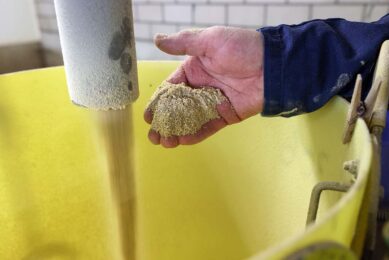
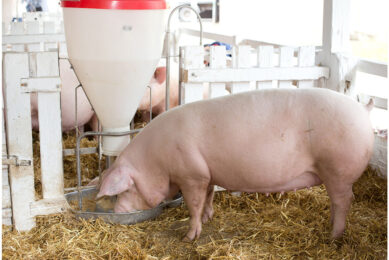
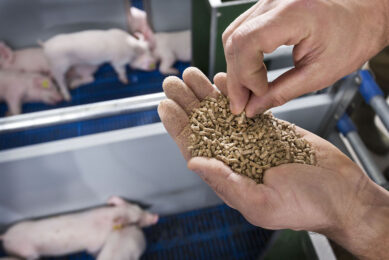
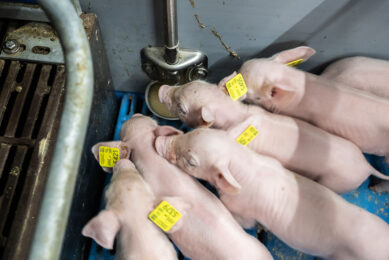



 WP Admin
WP Admin  Bewerk bericht
Bewerk bericht